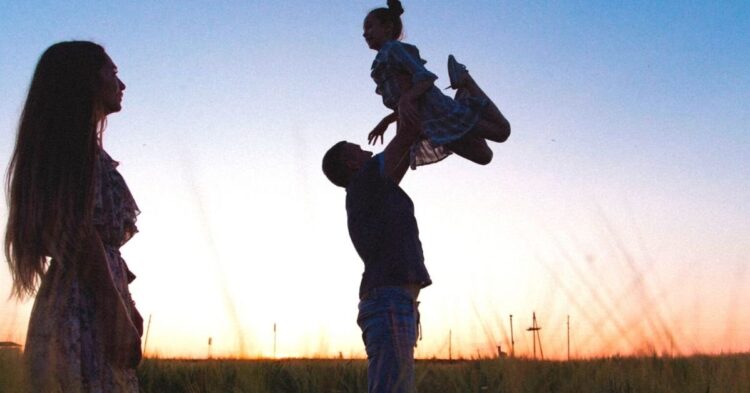When it comes to having and raising children , many people have many different opinions.
There are dozens of different approaches to raising children. Some rule with an iron fist, while others are a bit less strict and harsh on their kids. Many parents feel they know exactly how to parent and believe that they know best, but in the end, it’s all about how the kids feel and turn out.
Across the globe, many cultures raise children differently, as well.

While parents have different views on parenting, culture plays a large role in this.
Some cultures view parenting one way, while other cultures view parenting in a completely different way. Depending on where you are from and where you live, things can play a role.
Some countries have children who are “happier” than others, too.

Apparently, there are measurable statistics to showcase which countries have children who are the happiest and also have the best “overall well-being,” which, can be traced back to the way in which they are raised and parented.
A recent study indicated that The Netherlands have children with the best overall well-being.

A report done and published by UNICEF indicated that children in the Netherlands had the highest sense of well-being.
The study looked at children’s mental health, physical health, and both academic and social skills, as well.
There are dozens of factors that contribute to a child’s overall well-being.

According to parenting experts, children who come from more “affluent” countries tend to be seen as having overall better well-being than countries with less, because socio-economics play a factor in providing a child with all of their needs.
However, parenting also plays a role in this, too.

Anita Cleare, author of “The Working Parent’s Survival Guide,” claims that an “assertive parenting style” is one that many parents should focus on and also mimic.
The “assertive parenting style” sounds like it’s harsh, but it doesn’t always have to be.
Assertive parenting is giving routine and structure.

Cleare claims that asstertive parenting relies a lot on setting routines and setting boundaries, however, it’s with “love and warmth” not with harshness and coldness.
Additionally, communication is key with children, especially when it comes to discipline.
You should always be open in communication with kids.

Whether it’s punishment or just communicating, being open and honest with kids is very important.
Cleare says that “shame” is not something that kids do well with. In fact, she says that speaking to kids is more important than sharing them for their wrongdoings.
In addition, children said that pressure from social life and academia mattered to them.

According to the report, societal pressure played a big role in how the children saw other people and themselves.
Additionally, the report indicated that 81% of teens from The Netherlands said that they “were able to make friends easily.”
Having “non-competitive schools” also plays a large role in children’s happiness.

Life happiness and overall satisfaction also revolved around how much they felt that they belonged at their school.
Where teenagers felt an accepted sense of self at their school, their overall self-worth, and happiness was increased.
However, it’s important to note that from the study, wealth does play a role.

The report published by UNICEF indicates that the overall wealth of a country does play a part in the ranking of childhood well-being.
In fact, aside from The Netherlands, Denmark and Norway were ranked relatively high in children’s overall well-being.
On the contrary, some countries ranked low.

Chile, Bulgaria, and the U.S. were at the bottom of the list in terms of childhood well-being.
In their report, UNICEF stated, “even countries with good social, economic and environmental conditions are a long way from meeting the targets set in the 2030 Agenda for Sustainable Development.”
















































